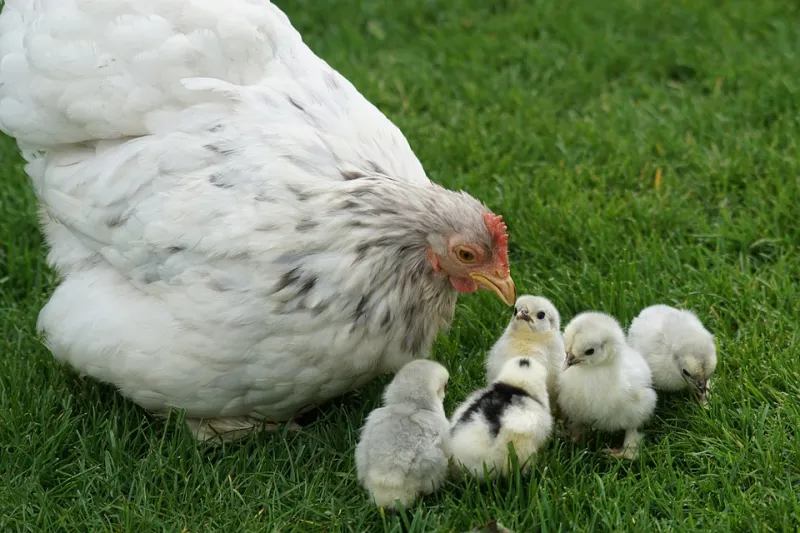Urban Chickens
Update on VIRULENT NEWCASTLE DISEASE (VND) in Southern California
Chickens are delightful creatures that not only provide us with delicious eggs, they also provide many reasons for us to include them in our gardens!

Some Benefits of Including Chickens in the Garden
- Their poop provides organic fertilizer rich in nitrogen that can be added to your compost.
- They are omnivores so they’re great to include as part of your integrated pest management, as they love to eat bugs and to assist with weed control as part of their diet.
- They make excellent companions while you work in your garden and they’ll even help till the ground for you for your next gardening project.
Basic Requirements for Keeping Chickens
- Each city has its own ordinances regarding how many chickens, if any, are allowed on each property. Therefore, it is important to check the most current ordinances with city or county officials. The following links may provide your city’s code of ordinances: American Legal Publishing Code Library , General Code Library , Municode Library.
- It’s also a good idea to let your neighbors know you’re thinking about getting chickens to help keep the flow of communication open in case they have questions or concerns.
- Your chickens will need a coop to shelter them from the elements (i.e., sun, rain, wind, etc.) and predators. The coop should have a perch so the chickens can sleep on, one nesting box for every four birds, absorbent litter material, ventilation, and an area with dirt or sand for dust bathing. The coop should be placed in a shady area with access to sun, and provide at least 10 square feet per bird in their run area.
- Water is essential and must be provided at all times as well as a balanced nutritional diet.
- Chickens are social animals so a minimum of two is best.
Keeping Chickens Healthy with Biosecurity
- Prevention is the best method for keeping your birds healthy and free from disease. By implementing a good biosecurity program you minimize the chances of spreading diseases. Make these your daily habit!
- Wash hands before and after handling or having any contact with birds.
- Have dedicated boots and clothing when tending to your chickens and scrub and disinfect boots.
- Avoid sharing equipment unless thoroughly cleaned and disinfected before and after each use.
- Keep waterfowl and wild birds from having any contact with your chickens.
Helpful Websites
https://ucanr.edu/sites/poultry/
https://www.cdfa.ca.gov/Avian_Health
